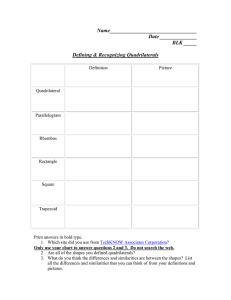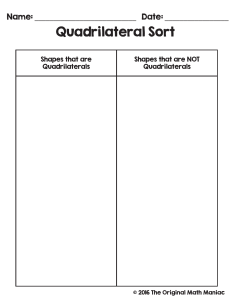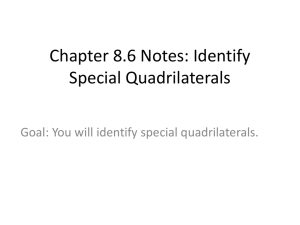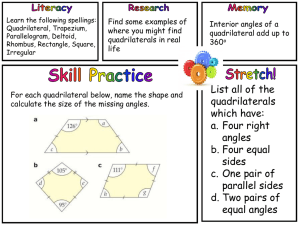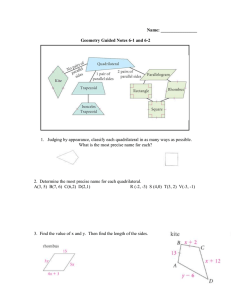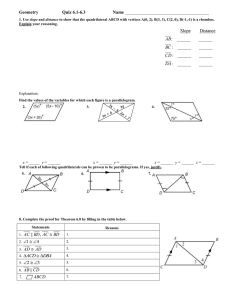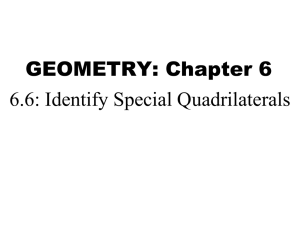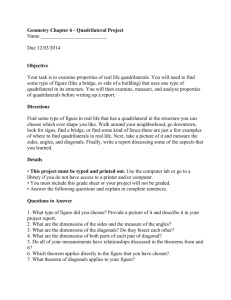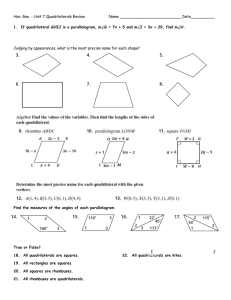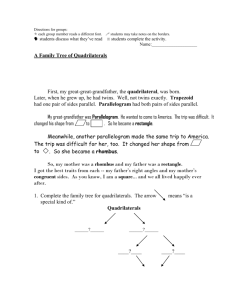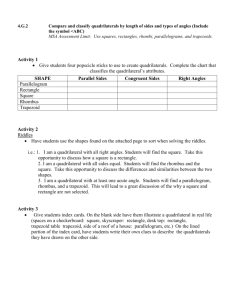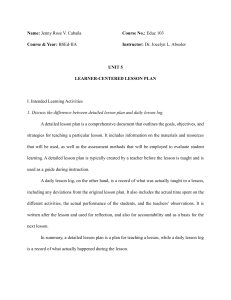Quadrilateral Review
advertisement
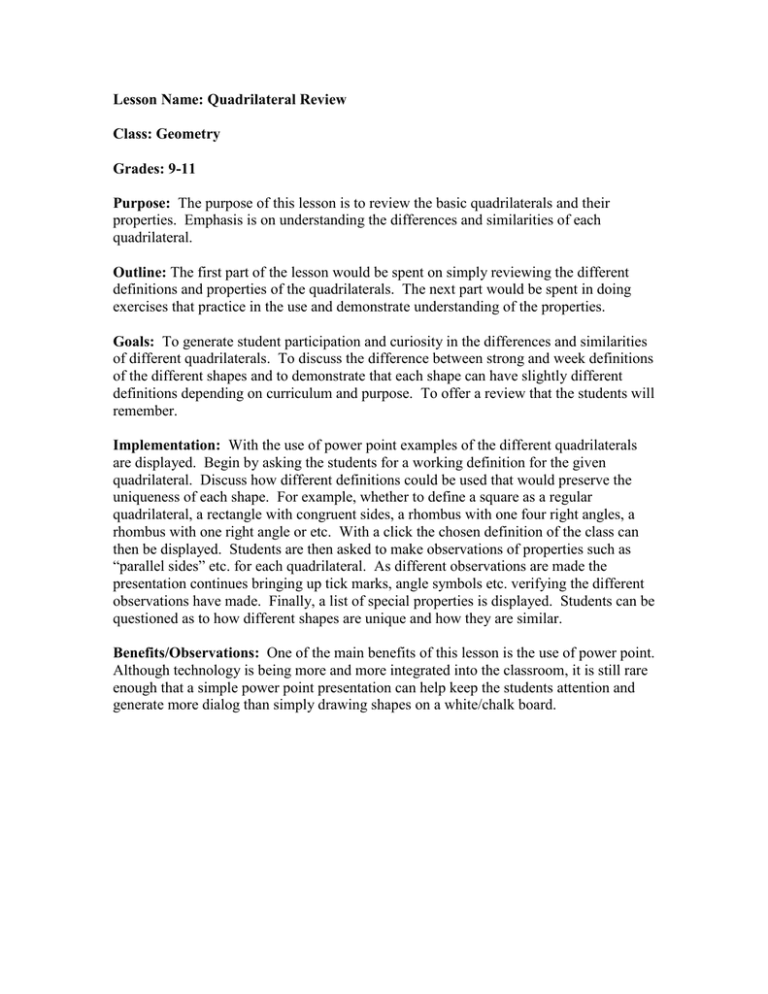
Lesson Name: Quadrilateral Review Class: Geometry Grades: 9-11 Purpose: The purpose of this lesson is to review the basic quadrilaterals and their properties. Emphasis is on understanding the differences and similarities of each quadrilateral. Outline: The first part of the lesson would be spent on simply reviewing the different definitions and properties of the quadrilaterals. The next part would be spent in doing exercises that practice in the use and demonstrate understanding of the properties. Goals: To generate student participation and curiosity in the differences and similarities of different quadrilaterals. To discuss the difference between strong and week definitions of the different shapes and to demonstrate that each shape can have slightly different definitions depending on curriculum and purpose. To offer a review that the students will remember. Implementation: With the use of power point examples of the different quadrilaterals are displayed. Begin by asking the students for a working definition for the given quadrilateral. Discuss how different definitions could be used that would preserve the uniqueness of each shape. For example, whether to define a square as a regular quadrilateral, a rectangle with congruent sides, a rhombus with one four right angles, a rhombus with one right angle or etc. With a click the chosen definition of the class can then be displayed. Students are then asked to make observations of properties such as “parallel sides” etc. for each quadrilateral. As different observations are made the presentation continues bringing up tick marks, angle symbols etc. verifying the different observations have made. Finally, a list of special properties is displayed. Students can be questioned as to how different shapes are unique and how they are similar. Benefits/Observations: One of the main benefits of this lesson is the use of power point. Although technology is being more and more integrated into the classroom, it is still rare enough that a simple power point presentation can help keep the students attention and generate more dialog than simply drawing shapes on a white/chalk board.
